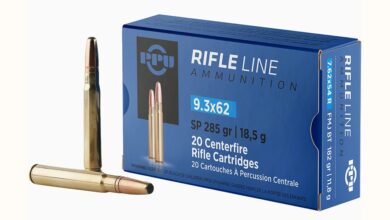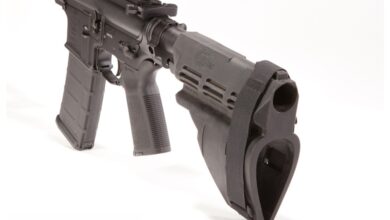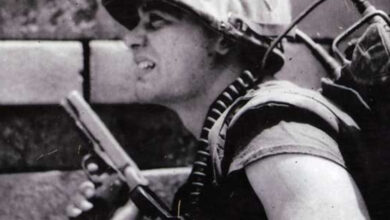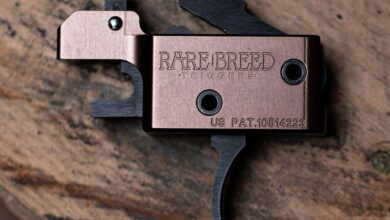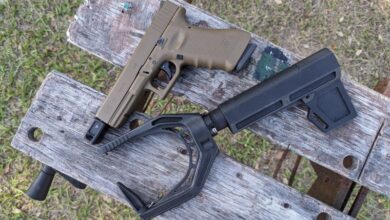The Beretta M1935: A .32 ACP Service Pistol
Beretta is a legendary company and is the oldest arms company in the world. For reference, they’ve been producing firearms since the 1500s. In a post-World War I world, the military forces were modernizing. Beretta wanted in on the sweet Italian military contract and began producing pistols like the M1923, the M1934, and the M1935. I was recently lucky enough to score a Beretta M1935 from a local auction house, and it’s a testament to the quality Beretta is known for.
History of the Beretta 1935
Beretta had produced the M1923 as the service pistol of the Italian Army in a little caliber called 9mm Glisenti. Beretta had become aware that the Italian Army was impressed by the Walther PP series. They weren’t about to let their former enemy sell a pistol to the Italian Army, so they went about designing the M1934. This gun ended up catching the eye of the Italian Army, and it became their new service pistol. The M1934 was a .380 ACP pistol, much like the Walther PP series, and was a bit more standard than the old 9mm Glisenti round.
The M1934 was specific to the Army and stayed that way until 1991. A year later, Beretta produced the M1935. The M1935 was basically identical to the M1934 but was chambered in my beloved .32 ACP, a very popular caliber in that era. The M1934 and M1945 were straight blowback designs, and the .32 ACP variant offered lower overall recoil. While the Army was happy with the M1934, the Italian Navy and Air Force both adopted the M1935 in .32 ACP.
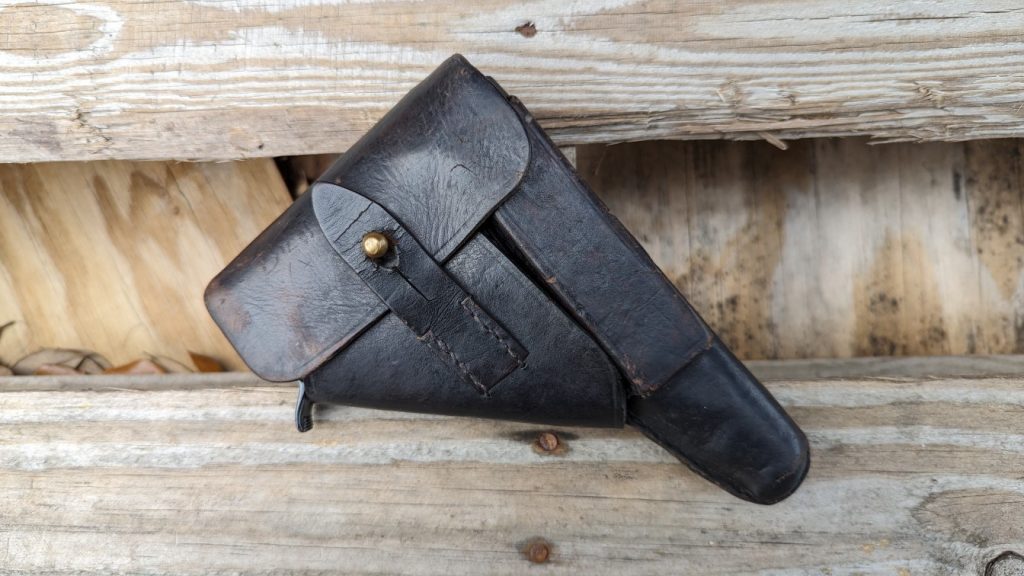
The M1935 was also adopted by the Romanian military, albeit with a different sight arrangement. The German military also issued the M1935 when things were desperate near the end of the war. These guns were very popular bring-backs and trophy items for Americans. It was a small, stout little pistol and was likely the captured sidearm of any number of Allied soldiers.
Features and Specifications
This wasn’t the first of the Beretta pistols with an exposed barrel, but it is among the first few. This set a trend for Beretta that lasted for decades. It’s still produced with the various 92 series and the tip-up barrel pocket pistols like the 21A and 3032. This exposed barrel design works quite well for a direct blowback gun. The entire slide is the ejection port, so it tends to cycle very reliably.
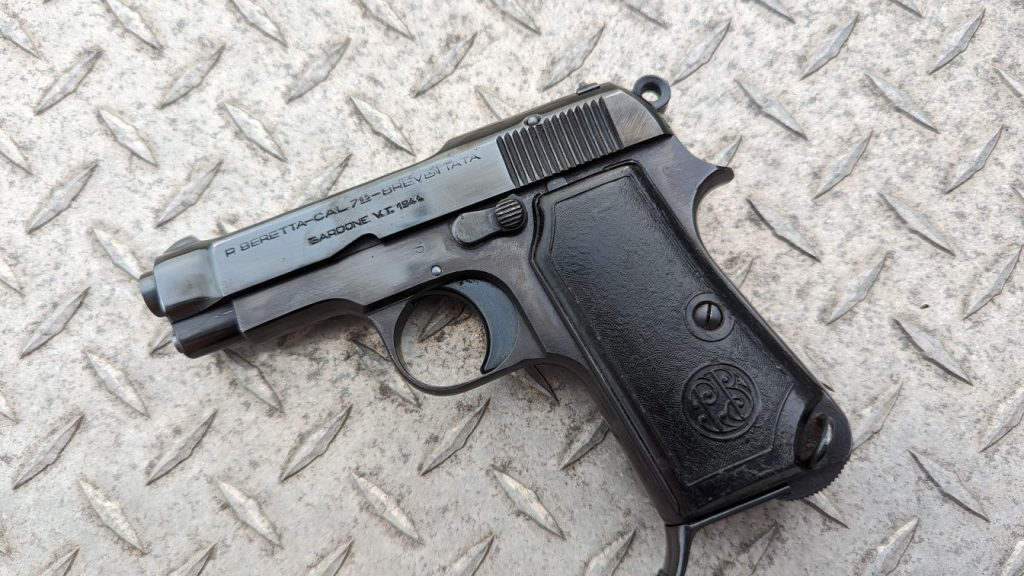
The M1935’s slide does lock rearward when the last shot is fired and releases when the magazine is removed. The proper way to conduct a somewhat speedy reload is to switch the safety upward, which will hold the slide locked to the rear. Then, drop the mag, reload, and release the safety.
The M1935 are very European service pistols, so that means they are quite small. This wouldn’t necessarily be out of place as a concealed-carry gun. The gun is 5.98 inches overall, with a barrel length of 3.375 inches. The gun weighs 1.39 pounds and holds eight rounds in a single-stack magazine.
The M1935 Ergonomics
When we delve into old European pistols, we have a few expectations, and the Beretta M1935 hits that checklist hard. Is it a heel-mounted magazine release? Check. Rotating frame safety? Check. Single-action, hammer-fired design? Check. Weird slide-lock mechanism? Check.
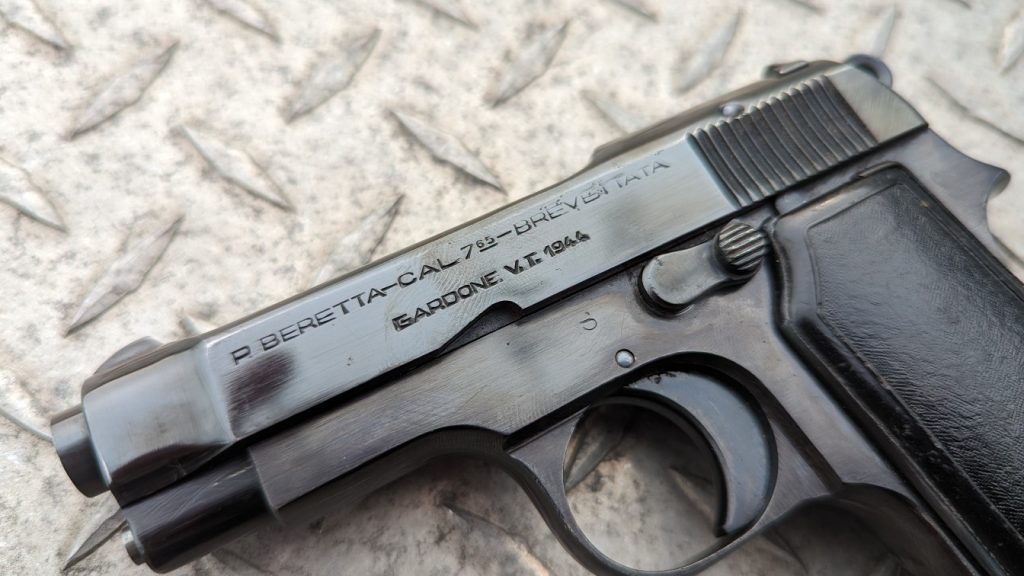
This is certainly a product of its time, and it definitely shows. The M1935 is a little handful, and even though it’s fairly old, the gun is quite comfortable and easy to use. While the slide lock is finicky, it’s workable.
Reaching the safety is easy, but good God, it rotates a half mile before it can move from safe to fire. The hammer is easy to cock rearward with your thumb, and the slide itself isn’t overly difficult to move while cycling the gun. Everything about the gun is very smooth and impressively made. It’s got that Beretta touch that’s tough to beat.
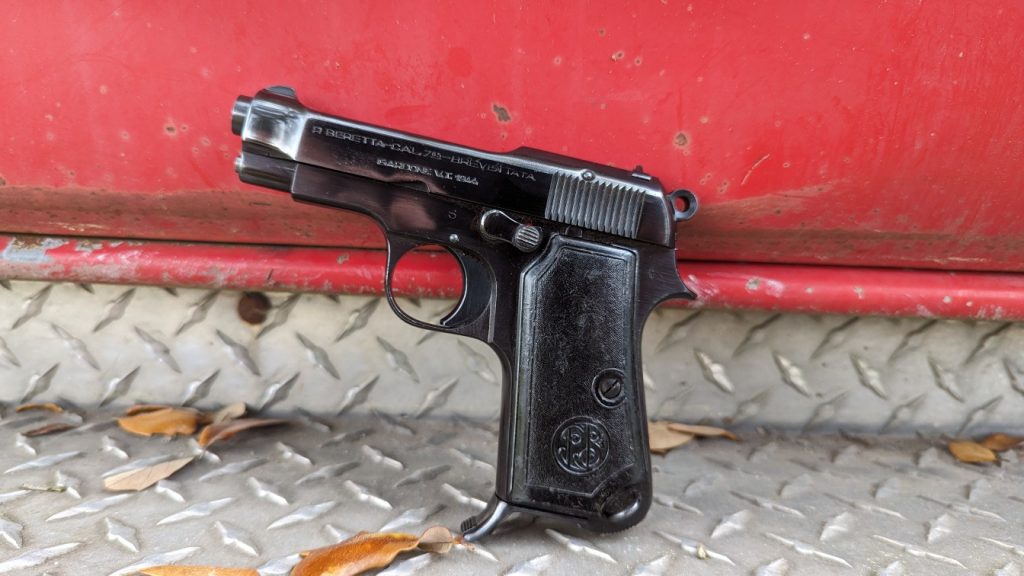
The pistol grip has a fairly straight angle, but it’s still fine. There is a slight beavertail that protects your hand from slide and hammer bite. The magazine has a slight extension to keep your hand nice and full of the gun. The gun would be out of place now but still quite usable.
At the Range
I love .32 ACP pistols, and the Beretta M1935 is a great example of why I love them so much. The blowback-operated gun has very little recoil. The .32 ACP round isn’t some big bear-stopping bullet, and it lends itself well to smaller, blowback-operated pistols. Remember, this gun was designed to be a .380 ACP. The only difference between the two is the slide weight and recoil spring. The frame is still designed for a .380.
This makes the gun heavier than it needs to be, but weight cuts recoil, and I love shooting the M1935. It’s a step back in time, and I can see why the Italian, Romanian, and even German military forces used the gun. You could hand it to any soldier, and none should struggle using it. There isn’t much recoil, and it’s comfortable to carry. It’s perfect for someone who is unlikely to be on the front line but still requires a firearm. The low recoil makes it easy to control, which is important for an untrained conscript.
The sights are small, and that is another product of the times. Everyone had small sights on their guns. If you ever wonder where the ‘you won’t see your sights’ advice came from, it originated with sights like these. At a square range, I can get behind them, take my time, and make my shots count. However, when I started trying to shoot fast, the sights became an issue.
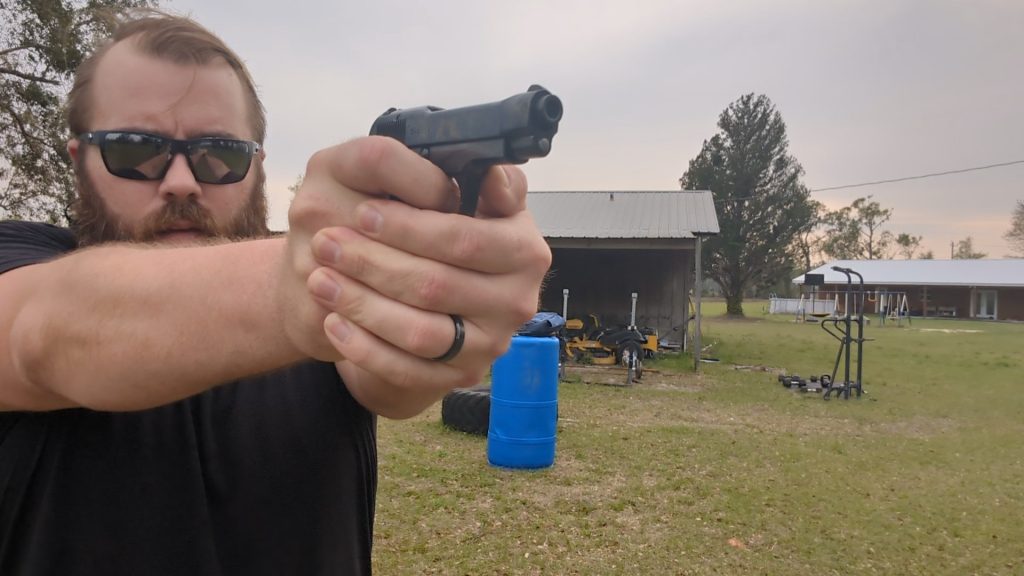
They are tough to see, and the front and rear sight look identical. This creates a situation where it’s tough to tell which sight is which. If you can take your time, you’ll find that the Beretta M1935 can be a very accurate gun.
Trading Shots
The Beretta M1935 was plenty reliable with standard FMJs. Like most .32 ACP guns, it dislikes hollow points. They don’t always feed correctly, and roughly twice a magazine, I’d have problems with the hollow point feeding. This isn’t a big concern for me because it’s not a self-defense weapon, just a fun plinker and a piece of WWII history. It even came with a nice leather holster with an interesting design.
The Beretta M1935 is a finely made weapon, and it shows that Beretta’s reputation precedes them. They’ve been making quality firearms for a very long time, and they don’t seem to be slowing down anytime soon.
The post The Beretta M1935: A .32 ACP Service Pistol appeared first on The Mag Life.
Read the full article here

